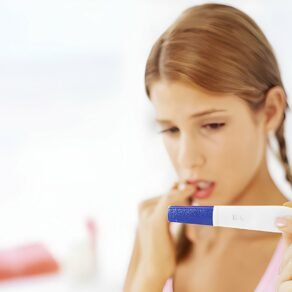Understanding Digestive Changes During Pregnancy
Pregnancy is a transformative journey marked by numerous physical and hormonal changes, including those affecting the digestive system. While many expectant mothers anticipate common symptoms like nausea and heartburn, diarrhea may also occur, raising questions about pregnancy can cause diarrhea.
The Impact of Pregnancy on Digestion
During pregnancy, hormonal fluctuations, particularly an increase in progesterone levels, can affect gastrointestinal function. Progesterone relaxes smooth muscles, including those in the digestive tract, which can slow down the movement of food through the intestines. Additionally, the expanding uterus can exert pressure on the bowels, further contributing to changes in bowel habits.
Pregnancy Can Cause Diarrhea
In some cases, pregnancy itself can cause diarrhea due to hormonal changes and increased bowel activity. This phenomenon is more common in the early stages of pregnancy but can occur at any point throughout gestation. Expectant mothers may experience diarrhea as a standalone symptom or in conjunction with other gastrointestinal issues like bloating and abdominal discomfort.
Potential Causes of Pregnancy-Related Diarrhea
Several factors may contribute to diarrhea during pregnancy:
- Hormonal Changes: Fluctuations in hormone levels, particularly progesterone, can lead to increased bowel activity and looser stools.
- Dietary Factors: Changes in dietary habits or food sensitivities may trigger gastrointestinal symptoms, including diarrhea.
- Stress and Anxiety: Pregnancy can be a stressful time, and heightened stress levels may exacerbate digestive issues like diarrhea.
- Infections: In some cases, diarrhea during pregnancy may be due to bacterial or viral infections, such as gastroenteritis.
- Medications and Supplements: Certain medications or prenatal vitamins may have gastrointestinal side effects, including diarrhea.
Managing Diarrhea During Pregnancy
While diarrhea during pregnancy is typically not cause for alarm, it’s essential to manage symptoms effectively to prevent dehydration and discomfort. Expectant mothers can take the following steps:
- Stay Hydrated: Drink plenty of fluids, such as water, electrolyte solutions, and clear broths, to replace lost fluids and prevent dehydration.
- Eat a Balanced Diet: Stick to bland, easily digestible foods like rice, bananas, applesauce, and toast (BRAT diet) to soothe the digestive system.
- Avoid Trigger Foods: Identify and avoid foods that worsen diarrhea, such as spicy or greasy foods, caffeine, and artificial sweeteners.
- Rest and Relaxation: Prioritize rest and relaxation to reduce stress levels, which can exacerbate gastrointestinal symptoms.
- Consult Healthcare Provider: If diarrhea persists or is accompanied by other concerning symptoms like fever or abdominal pain, consult a healthcare provider for evaluation and guidance.
Conclusion: Navigating Digestive Changes
Pregnancy can bring about various changes in the body, including those affecting the digestive system. While diarrhea during pregnancy is not uncommon and is often due to hormonal fluctuations and increased bowel activity, it’s essential for expectant mothers to manage symptoms effectively and seek medical attention if needed. By understanding the potential causes of pregnancy-related diarrhea and implementing appropriate strategies for symptom management, women can navigate this aspect of their prenatal journey with confidence and peace of mind.





